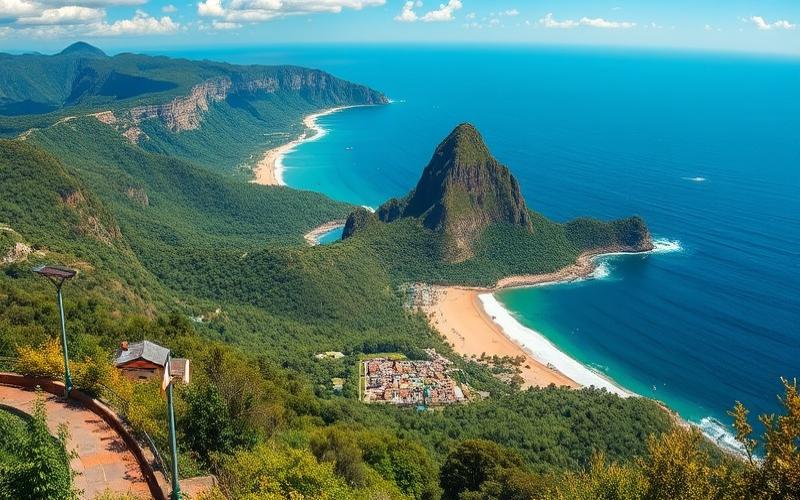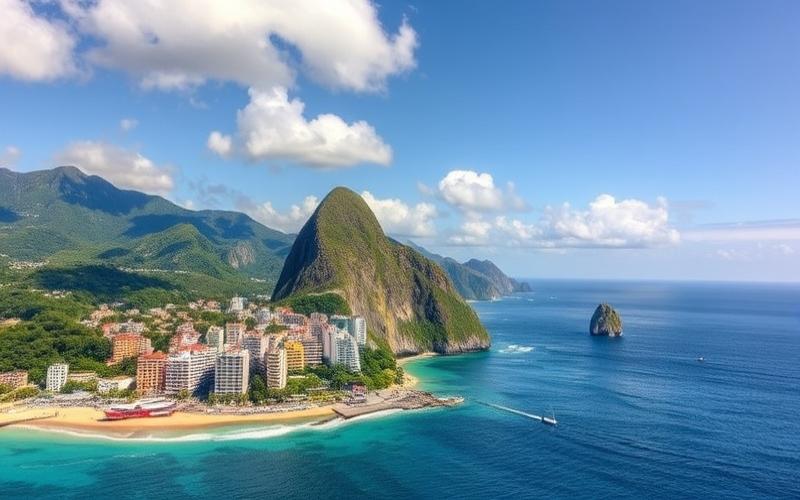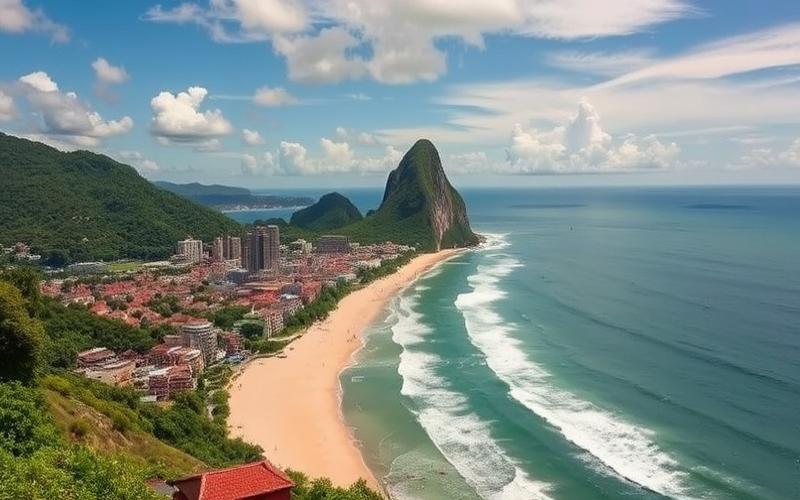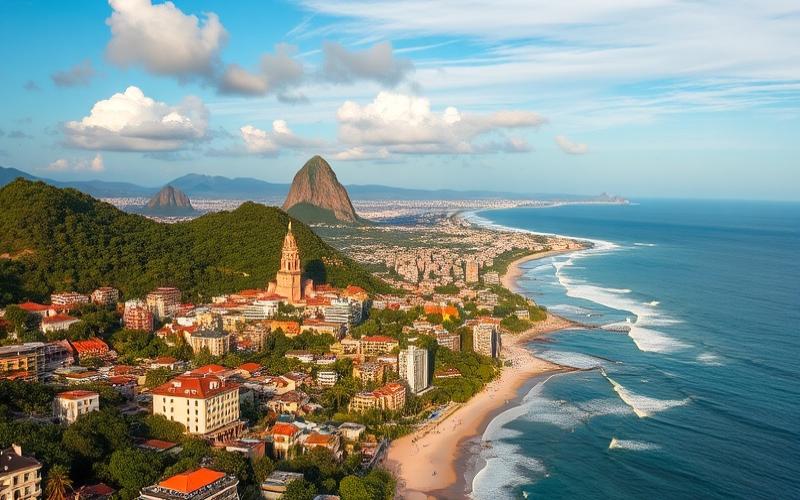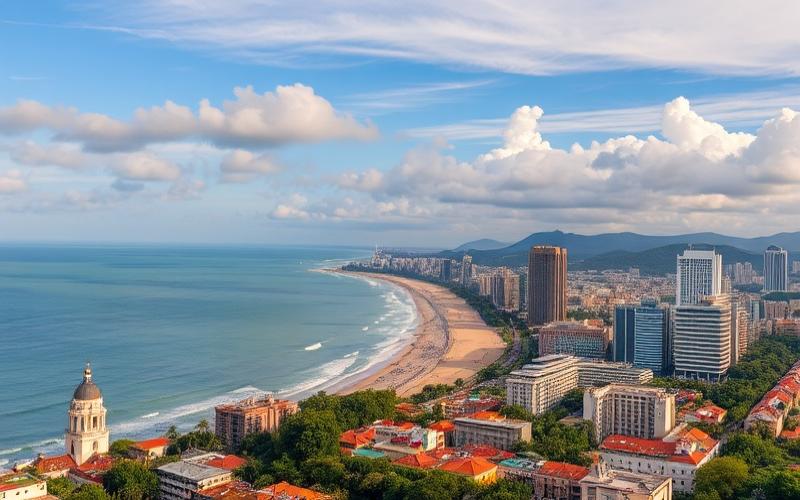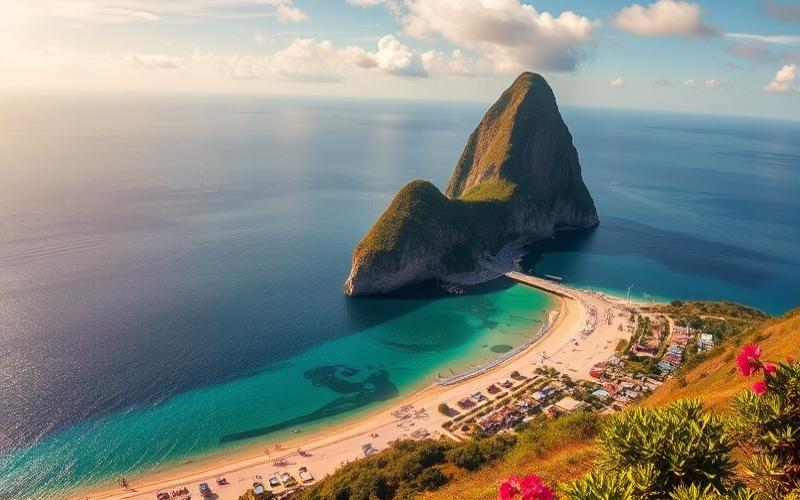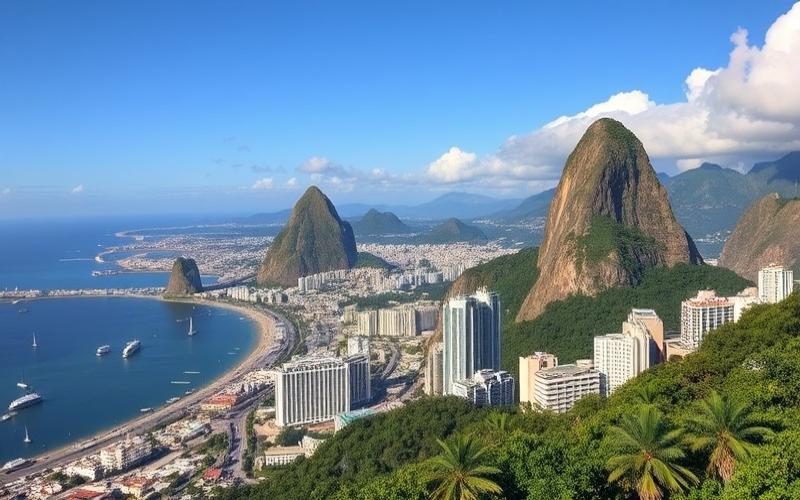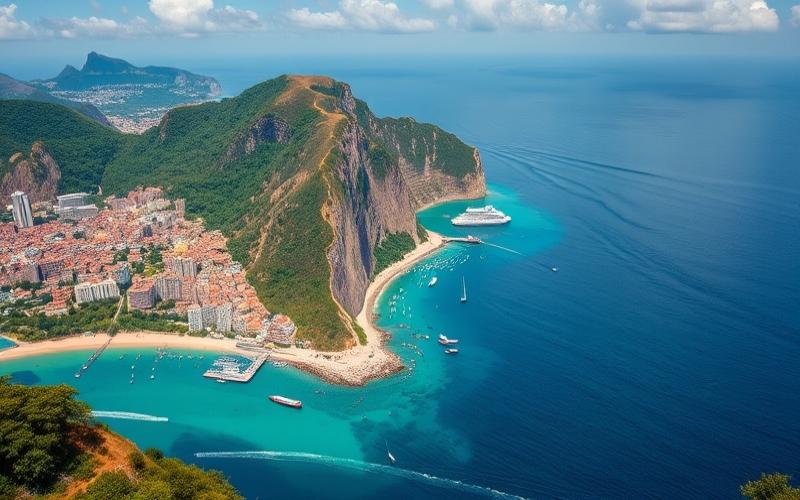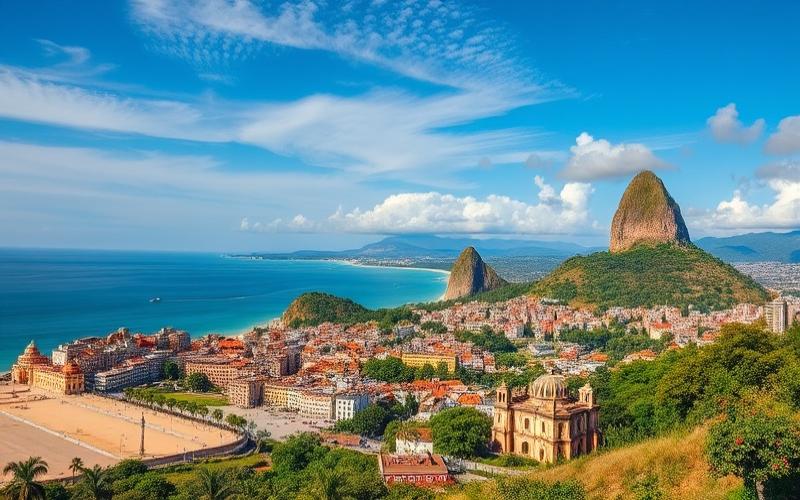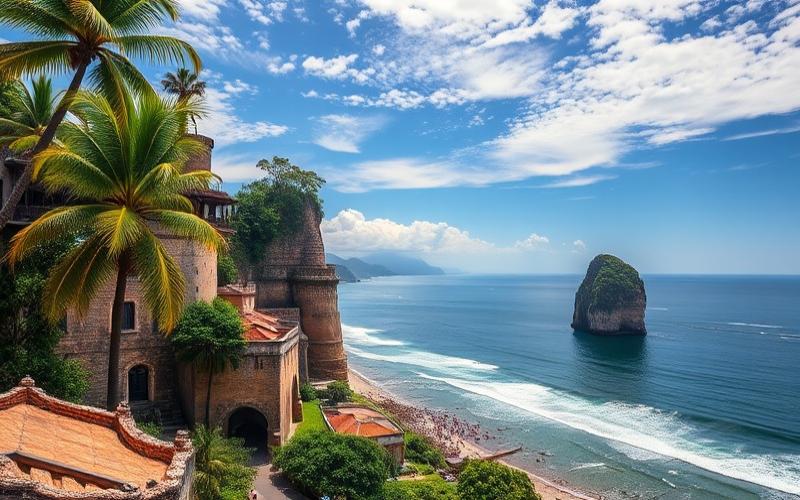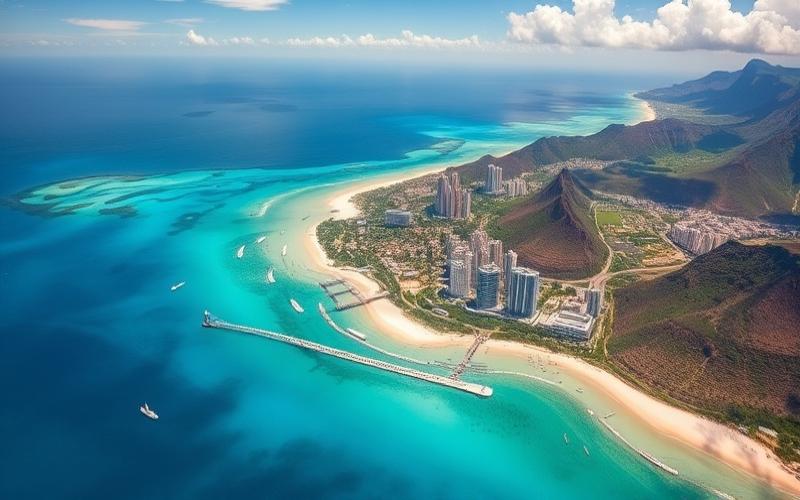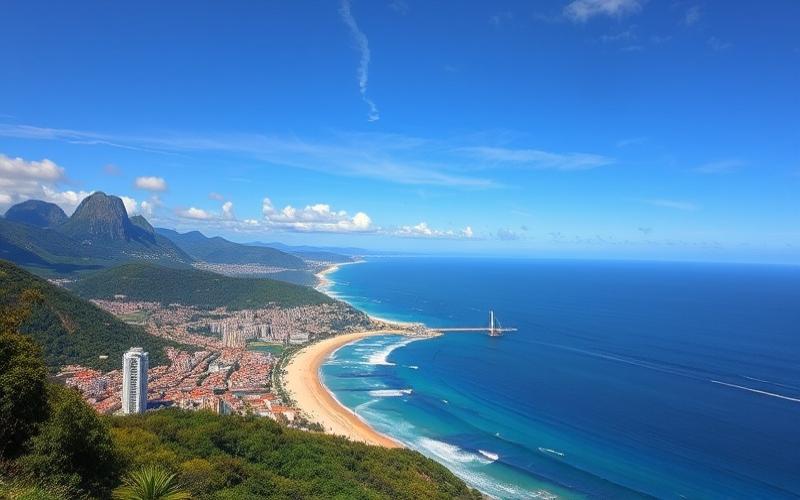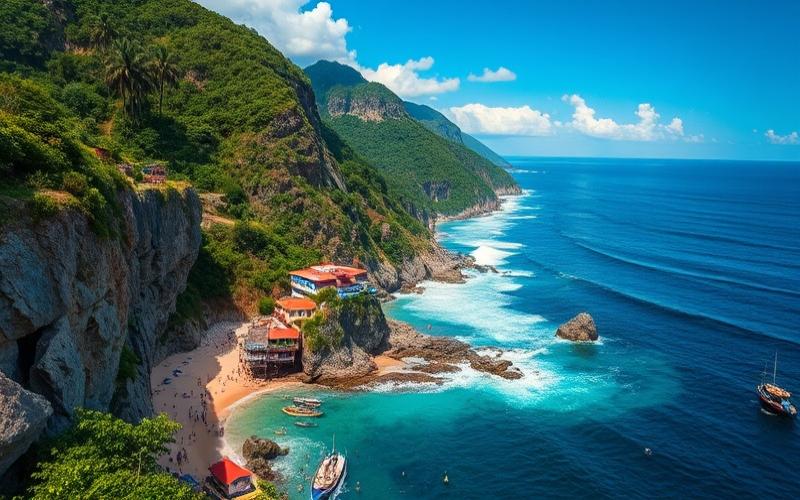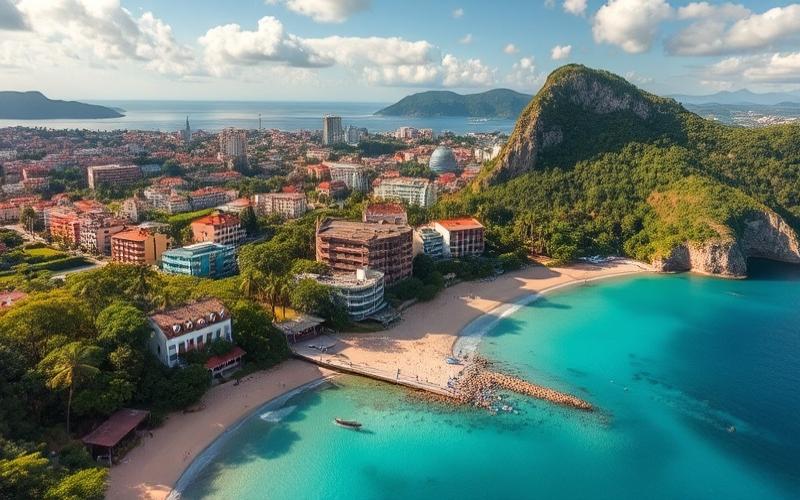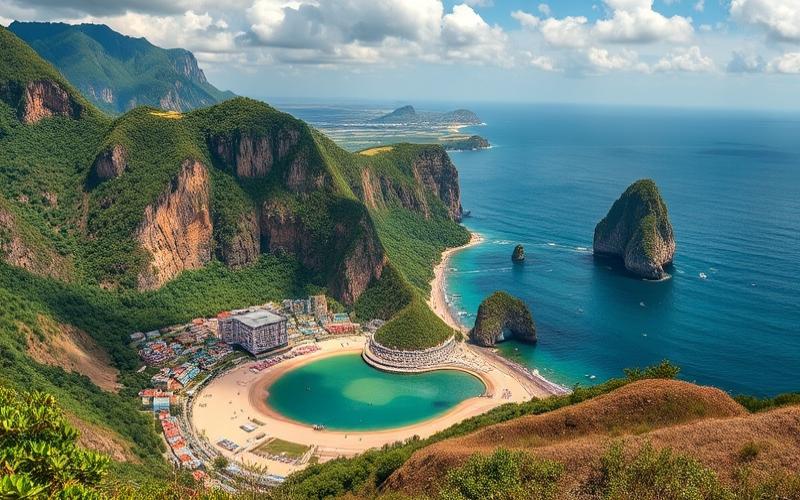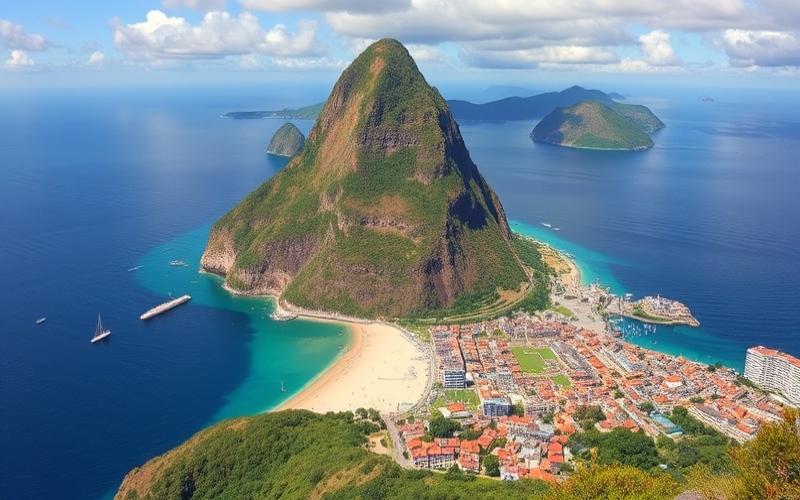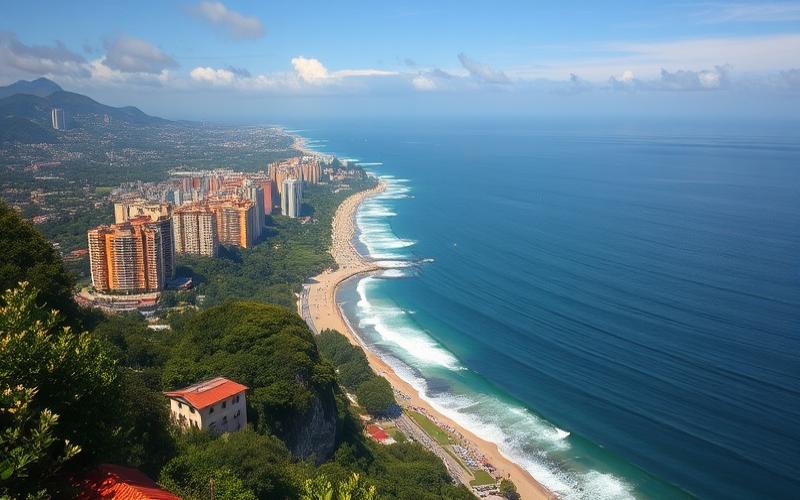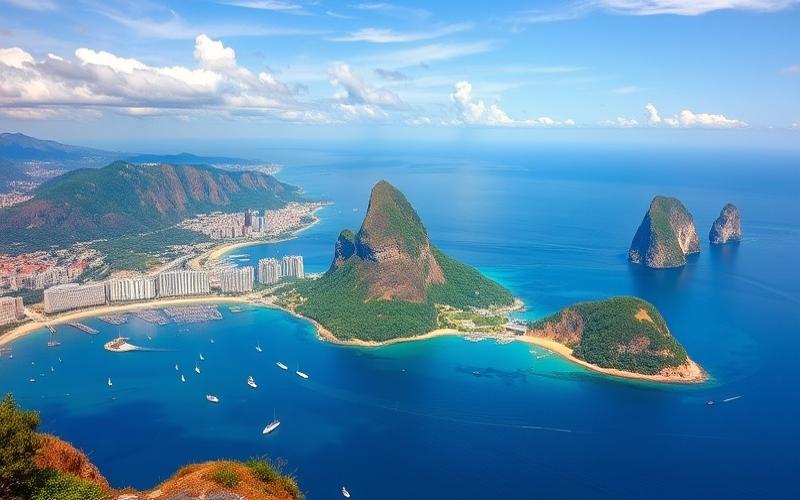
 Published on and written by Cyril Jarnias
Published on and written by Cyril Jarnias
Importing a vehicle into Brazil can quickly become a complex process, marked by strict regulations and rigorous administrative procedures. For luxury car enthusiasts or those simply relocating with their vehicle, understanding the import procedures becomes essential.
This dynamic and constantly evolving market is influenced by various factors, ranging from import taxes to specific environmental requirements. Navigating through this legislative maze requires meticulous preparation to avoid common pitfalls and ensure a smooth transition.
This article aims to guide you through the key steps, highlighting the challenges and opportunities associated with transporting vehicles to the heart of Brazil.
Understanding Customs Procedures for Vehicle Importation into Brazil
Legal Requirements for Vehicle Importation into Brazil
To import a vehicle into Brazil, it is mandatory to provide several essential documents:
- Vehicle Certificate of Origin
- International Freight Manifest
- Commercial Invoice
- Packing List
- Import Declaration with customs authorities
- Documents related to compliance with environmental and safety standards
The procedure also requires compliance with specific restrictions depending on the type and age of the vehicle.
Fees and Taxes to Expect
Importing a vehicle involves payment of the following taxes:
| Tax/Fee | Approximate Rate | Additional Details |
|---|---|---|
| Import Duty (II) | 0% to 35% | Depending on type/value, generally 35% |
| Industrialized Products Tax (IPI) | 0% to 330% | Varies according to engine type |
| Local VAT (ICMS) | Varies by State | Applied on total value |
| PIS/PASEP | Approximately 2.1% | Federal social program |
| COFINS | Approximately 9.6% | Federal social security |
Quotas or exemptions may temporarily reduce certain duties for specific categories such as disassembled electric or hybrid vehicles.
Emission and Safety Standards
The vehicle must meet Brazilian standards regarding:
- Pollutant Emissions: mandatory compliance with local environmental standards.
- Road Safety: certification required according to national criteria; technical inspection often necessary before registration.
Vehicles not meeting these requirements may be denied entry or registration.
Customs Clearance Process & Possible Delays
The process includes several steps:
- Submission of required documents.
- Possible physical inspection of the vehicle.
- Full payment of taxes and fees.
- Obtaining the national import certificate.
Average timeframes: between two weeks and several months depending on case complexity, document compliance, and volume processed by local customs.
Restrictions on Importable Vehicle Types & Exemptions
Non-exhaustive list of common restrictions:
- General ban on importing used cars except for exceptions (vintage/collector vehicles).
- Vehicles that are too polluting or non-compliant with technical standards are refused.
Typical exemptions:
- Vintage/collector vehicles, typically over thirty years old, sometimes benefit from simplified tax or documentary requirements if officially recognized as such.
To optimize your process:
- Hire a licensed customs broker, who is thoroughly familiar with local regulations and avoids costly errors during initial filing.
Common mistakes to avoid:
- Omission or inaccuracy in documentation
- Poor estimation of total costs including all taxes
- Failure to strictly comply with local technical requirements
Careful planning often leads to significant reduction in both costs and timeframes when importing vehicles into Brazil.
Good to Know:
To import a vehicle into Brazil, ensure you have the certificate of origin and freight manifest, and budget for import fees such as customs duty and VAT; it is advisable to hire a customs broker to simplify clearance and avoid common mistakes.
Taxes to Expect When Importing a Car into Brazil
Types of Taxes and Customs Duties Applicable to Car Importation into Brazil
| Tax / Duty | Calculation Basis | Indicative Rate | Specifics/Variations |
|---|---|---|---|
| Import Duty (II) | Customs value (CIF: cost + insurance + freight) | 0 to 35% | Full rate for vehicles outside Mercosur or non-preferential. Possible reduction under trade agreements (e.g., Mercosur). |
| IPI (Imposto sobre Produtos Industrializados) | Customs value + Import Duty | 0 to 330% | Usual rate for imported new cars: 25-38%. Varies by engine displacement, fuel type, usage (e.g., electric or hybrid vehicles may qualify for reduced rates). |
| ICMS (Imposto sobre Circulação de Mercadorias e Serviços) | Cumulative base (CIF + II + IPI + PIS/COFINS) | 12 to 18% | Rate varies by destination state in Brazil. |
| PIS/PASEP-Importation | Customs value + II + IPI | 2.1% | Federal social tax, specific to importation. |
| COFINS-Importation | Customs value + II + IPI | 9.6% | Federal social tax, specific to importation. |
Tax Calculation
The customs value is determined based on the vehicle’s price abroad, plus transportation and insurance costs until arrival in Brazil (CIF).
Duties and taxes apply cumulatively: each tax may be calculated on a base that already includes previous taxes.
Schematic calculation example:
- Calculation of II on CIF value.
- Calculation of IPI on (CIF + II).
- Calculation of PIS/COFINS on (CIF + II + IPI).
- Calculation of ICMS on (CIF + II + IPI + PIS/COFINS).
Variations by Origin, Value, and Intended Use
Vehicle Origin
- Vehicles from Mercosur member countries (e.g., Argentina) with valid certificate of origin may benefit from reduced or zero duties.
- Vehicles outside agreements: application of full rate (35% for Import Duty).
Vehicle Value
The higher the CIF value, the greater the amounts of duties and taxes, as they are proportional.
Intended Use
- Vehicles intended for resale or industrial use may, in some cases, benefit from suspension regimes or partial exemptions.
- Electric, hybrid, or “classic”/collector vehicles may qualify for reduced rates or specific exemptions, under strict conditions (vehicle age, restricted use, recognition by collector clubs, etc.).
Possible Exemptions and Reductions
- Ex-Tarifário: reduction or suspension of import duty for certain goods not produced in Brazil, mainly for industrial or high-tech equipment.
- Collector Vehicles: Exemptions or reduced rates for vintage/rare vehicles, subject to official recognition.
- Electric or Hybrid Vehicles: Some states apply reduced or exempt IPI or ICMS rates to encourage importation of clean vehicles.
- Temporary Reimportation: Partial exemption in case of temporary stay in Brazil (relocation, diplomatic use, etc.), with re-exportation obligation.
Documents Required for Tax Assessment and Import Procedure
- Valid passport or identity document.
- International or Brazilian driver’s license.
- Original vehicle purchase invoice.
- Ownership documents (registration certificate, title).
- Proof of insurance valid in Brazil.
- Transport contract (bill of lading, air/sea waybill).
- Import Declaration (DI) to be registered in the Siscomex system.
- Certificate of Origin to benefit from tariff preferences (e.g., Mercosur).
- Vehicle technical sheet (specifications, environmental compliance).
- For rental vehicles: contract authorizing entry into Brazil.
Practical Tips to Avoid Penalties or Delays
- Prepare all documents in advance and verify their compliance with Brazilian requirements.
- Ensure the vehicle is not subject to import restrictions (certain categories or model years may be prohibited, except for exceptions).
- Hire an experienced freight forwarder or customs broker to manage the import declaration filing and follow customs procedures.
- Verify accuracy of declared value: undervaluation may result in penalties or vehicle seizure.
- Monitor regulatory changes (rates, vehicle categories eligible for exemptions, etc.), which may change frequently.
- Anticipate impact of exchange rate fluctuations if foreign currency value must be converted at time of clearance.
- Keep all proof of tax and duty payments in case of subsequent audit.
Important Note
The total cost of importing a car into Brazil can represent between 90% and 120% of the vehicle’s value abroad, due to the cumulative combination of duties, taxes, and various fees.
Good to Know:
Importing a car into Brazil incurs taxes such as Import Duty (II), which can reach 35% of the CIF (Cost, Insurance and Freight) value, the Industrialized Products Tax (IPI) varying by engine displacement, ICMS which is calculated based on value and vehicle destination, as well as PIS/COFINS on revenue; some exemptions or reductions exist for electric vehicles or those imported under certain conditions provided by legislation.
Driver’s License for Expatriates: What You Need to Know
Legal Requirements to Drive Legally in Brazil as an Expatriate
- It is mandatory to possess a valid driver’s license from your home country.
- A certified Portuguese translation or an International Driving Permit (IDP) is required for any legal driving. The IDP serves only as a translation and never replaces the original national license.
- The minimum legal driving age in Brazil is generally set at 18 years, but can be up to 21 years in some states.
Validity Period of International Permit and Equivalence Conditions
| Status | Validity of Foreign/International License | Requirement After Expiration |
|---|---|---|
| Tourist/Visitor | 180 consecutive days | Obtain Brazilian license |
| Resident | 180 days after entry | Mandatory exchange |
After 180 days, you must obtain the Carteira Nacional de Habilitação (CNH), the Brazilian license, through an exchange procedure or local registration depending on the origin of the initial document.
Process to Obtain a Brazilian License (CNH)
Required Documents:
- Original and copy of the National Registry of Foreigners (RNE) or proof of application
- Passport (original + copy)
- CPF (Cadastro de Pessoas Físicas – equivalent to tax identification number)
- Original foreign license + certified translation
- Proof of recent address
Main Steps:
- Submission of documents to the local DETRAN.
- Passing a mandatory medical and psychological exam.
- In some cases, if exchange is not possible: enrollment in an accredited driving school, theoretical/practical training, then corresponding exams.
Indicative Cost: Fees vary by state but frequently range between R$300 and R$800 BRL excluding potential driving school fees for complete training.
Key Specific Rules to Know
- Speed Limits:
- In urban areas: generally 40–60 km/h
- National roads: up to 110 km/h
- Zero Tolerance on Drunk Driving:
- Maximum allowed rate near zero (<0.05 g/L)
- Heavy fines and immediate license suspension if violated
- Mandatory Insurance: DPvat (civil liability insurance) is legally required for all vehicles
- Seat Belt Use: Mandatory for all passengers, front and rear
- Phone Use While Driving: Prohibited without hands-free kit
Expatriate Testimonials
“The main difficulty was the administrative length when submitting documents – you really need to anticipate the time between each appointment with DETRAN. I saved a lot of time by having my license translated before my arrival by a locally recognized sworn translator.”
“The medical exam was quick but you need to be vigilant about missing papers — everything must be perfectly compliant or it’s immediate refusal!”
“To avoid any problems with local insurance after exchange or minor accident, I always made sure to keep certified scanned copies accessible from my phone.”
In Summary
To drive peacefully in Brazil as an expatriate, it is crucial to anticipate administrative procedures, strictly respect deadlines, and systematically keep all official supporting documents.
Good to Know:
Expatriates can drive in Brazil with an international license for 180 days, after which they must obtain a permanent Brazilian license; it is advisable to validate your foreign license upon arrival to avoid complications. Speed limits vary by area, auto insurance is mandatory, and it is prudent to prepare for frequent police checks.
Disclaimer: The information provided on this website is for informational purposes only and does not constitute financial, legal, or professional advice. We encourage you to consult qualified experts before making any investment, real estate, or expatriation decisions. Although we strive to maintain up-to-date and accurate information, we do not guarantee the completeness, accuracy, or timeliness of the proposed content. As investment and expatriation involve risks, we disclaim any liability for potential losses or damages arising from the use of this site. Your use of this site confirms your acceptance of these terms and your understanding of the associated risks.

